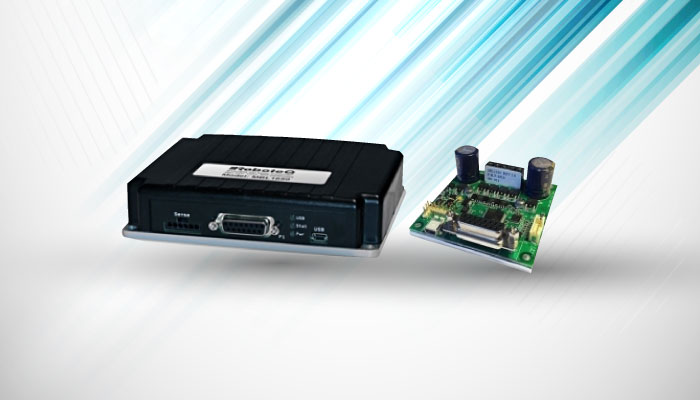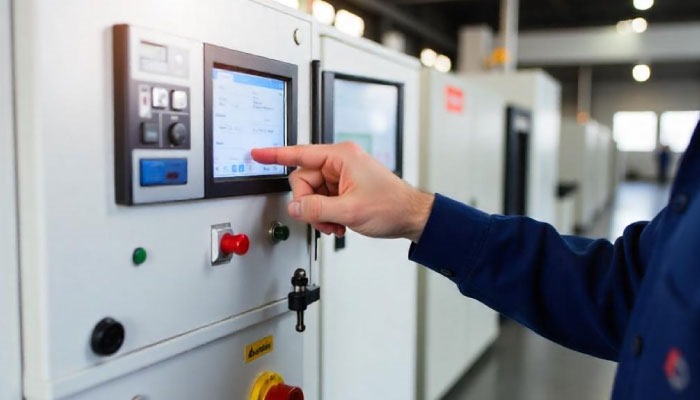PID Controllers in the Age of AI Unleashing the Power of PID Control with Artificial Intelligence

PID controllers have long been the cornerstone of engineering control, effectively regulating a vast array of systems, from simple motors to intricate industrial processes. Their widespread adoption is a testament to their remarkable effectiveness and versatility. However, as technology advances and systems become increasingly complex, even PID controllers face certain challenges. This is where artificial intelligence (AI) steps in, offering a transformative approach to enhance PID control and unlock new possibilities.
PID Control: A Foundation for Engineering Excellence
PID controllers, operate by continuously monitoring the difference between the desired and actual output of a system. They then employ three control parameters – proportional, integral, and derivative – to adjust the system's input accordingly. This feedback loop ensures that the output closely matches the desired value, maintaining system stability and achieving optimal performance. PID controllers have found widespread application in a vast array of engineering systems, including:
- Industrial process control: PID controllers are commonly used to regulate temperature, pressure, flow, and other critical parameters in industrial processes, ensuring consistent product quality and maximizing efficiency.
- Robotics: PID controllers play a crucial role in robotics, controlling the movement of motors, actuators, and servo mechanisms with precision and accuracy, enabling robots to perform complex tasks and interact with their environment.
- Automotive systems: PID controllers are employed in various automotive systems, such as engine control, transmission control, and suspension control, optimizing performance, fuel efficiency, and safety.
AI's Role in PID Control Enhancement
AI, with its ability to learn from data and adapt to changing conditions, presents a unique opportunity to augment PID control, overcoming its inherent limitations and propelling it to new heights of efficiency and precision. A diverse range of AI algorithms can be employed to enhance PID control, each offering unique advantages and capabilities.
- Reinforcement learning algorithms, for instance, can learn optimal PID parameters through trial-and-error interactions with the system, continuously improving performance.
- Neural networks, on the other hand, excel at pattern recognition and can extract complex relationships from system data, enabling them to predict disturbances and proactively adjust PID parameters.
- Fuzzy logic algorithms, inspired by human reasoning, can handle imprecise and uncertain information, making them suitable for controlling systems with non-linear dynamics or incomplete data.
- Additionally, genetic algorithms can optimize PID parameters by mimicking natural selection processes, effectively navigating complex parameter spaces. The choice of AI algorithm depends on the specific characteristics of the system being controlled and the desired performance objectives.
AI algorithms enhance PID controllers, including:
- Real-Time Adaptation: Traditional PID controllers struggle to adapt to dynamically changing environments. AI algorithms, however, can continuously analyze sensor data and adjust PID parameters in real-time, ensuring optimal performance even under unpredictable conditions.
- Complex System Optimization: With the increasing complexity of modern systems, manual tuning of PID parameters can become a daunting task. AI algorithms can tackle this challenge by analyzing system behavior and automatically identifying the optimal PID parameters, maximizing system efficiency and stability.
- Predictive Disturbance Compensation: Disturbances, both internal and external, can significantly impact system performance. AI algorithms can predict the effects of these disturbances and provide feedforward control, proactively adjusting the PID controller's response to minimize their impact.
By combining PID control's inherent strengths with AI's adaptability and learning capabilities, we can create a powerful control paradigm that surpasses the limitations of either technique alone. AI algorithms can complement PID control by providing real-time adaptation, optimizing parameters for complex systems, and mitigating the impact of disturbances. This synergistic approach opens up a world of possibilities for improving system performance, efficiency, and reliability.
AI-Enhanced PID Control: A Revolution in Engineering
The integration of AI into PID control has the potential to revolutionize a wide range of industries and applications. In industrial process control, AI-enhanced PID controllers can optimize production processes, reduce energy consumption, and improve product quality. In robotics, AI can enhance the precision and responsiveness of robots, enabling them to perform complex tasks with greater accuracy and efficiency. In automotive systems, AI-enhanced PID control can improve fuel efficiency, reduce emissions, and enhance vehicle performance and safety.
Conclusion
PID controllers have been instrumental in shaping the modern engineering landscape, but their capabilities are now being further amplified by the transformative power of AI. By combining these two powerful techniques, we can unlock new levels of performance, efficiency, and adaptability in a wide range of systems, paving the way for a future where engineering control reaches even greater heights. As AI continues to evolve, we can anticipate even more innovative applications of AI-enhanced PID control, shaping the future of engineering and driving technological progress.
Elevate your Control Systems with Theta Controls in Pune! Explore our Industrial Control System solutions, Process Control Instruments, Controller Control System, Programmable Temperature Controllers, Process Indicators, Paperless Recorders, and more. Upgrade your systems today for unparalleled efficiency and accuracy. Contact Theta Controls now!


